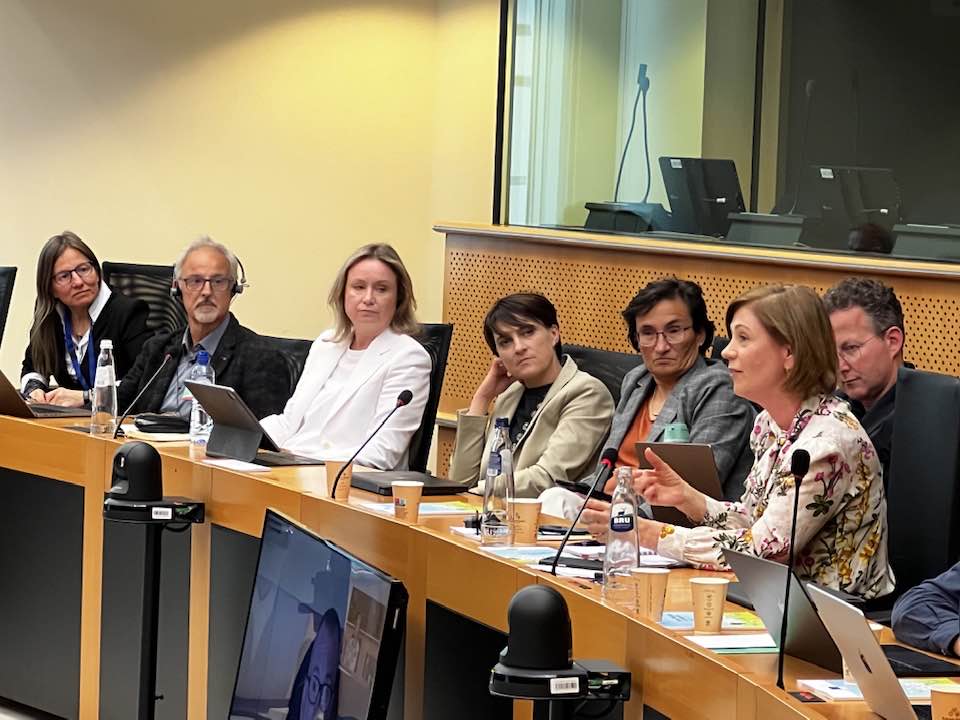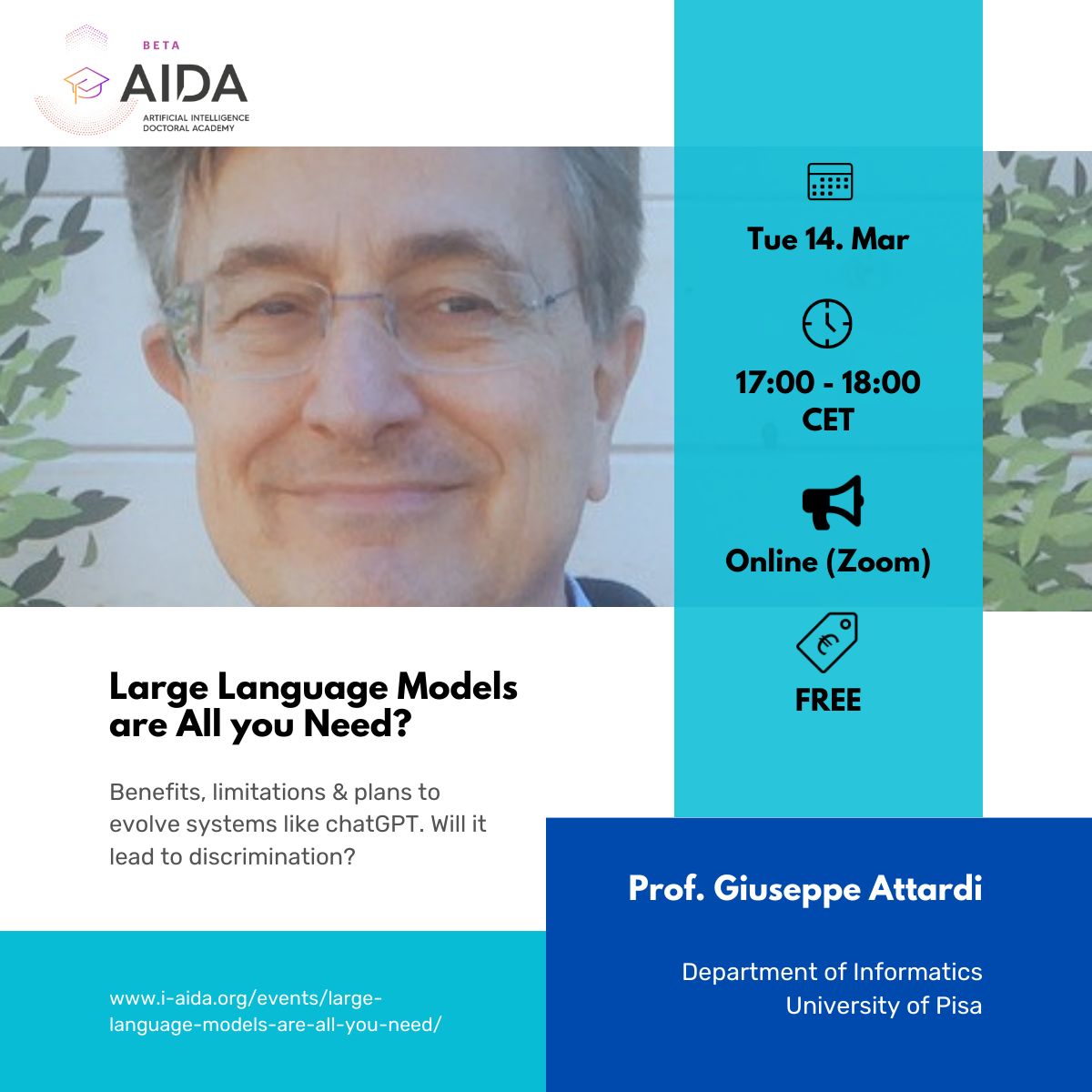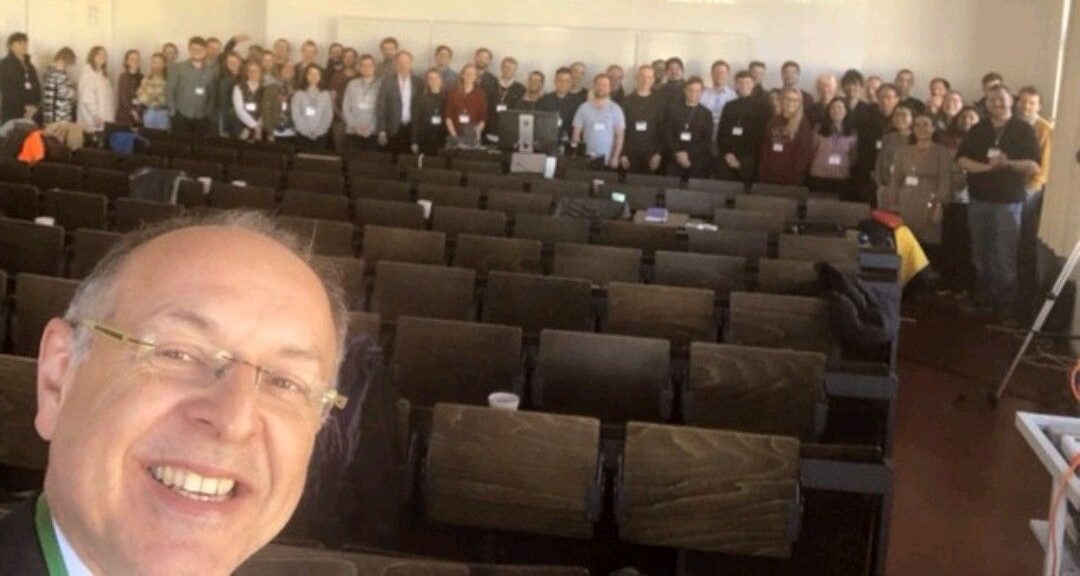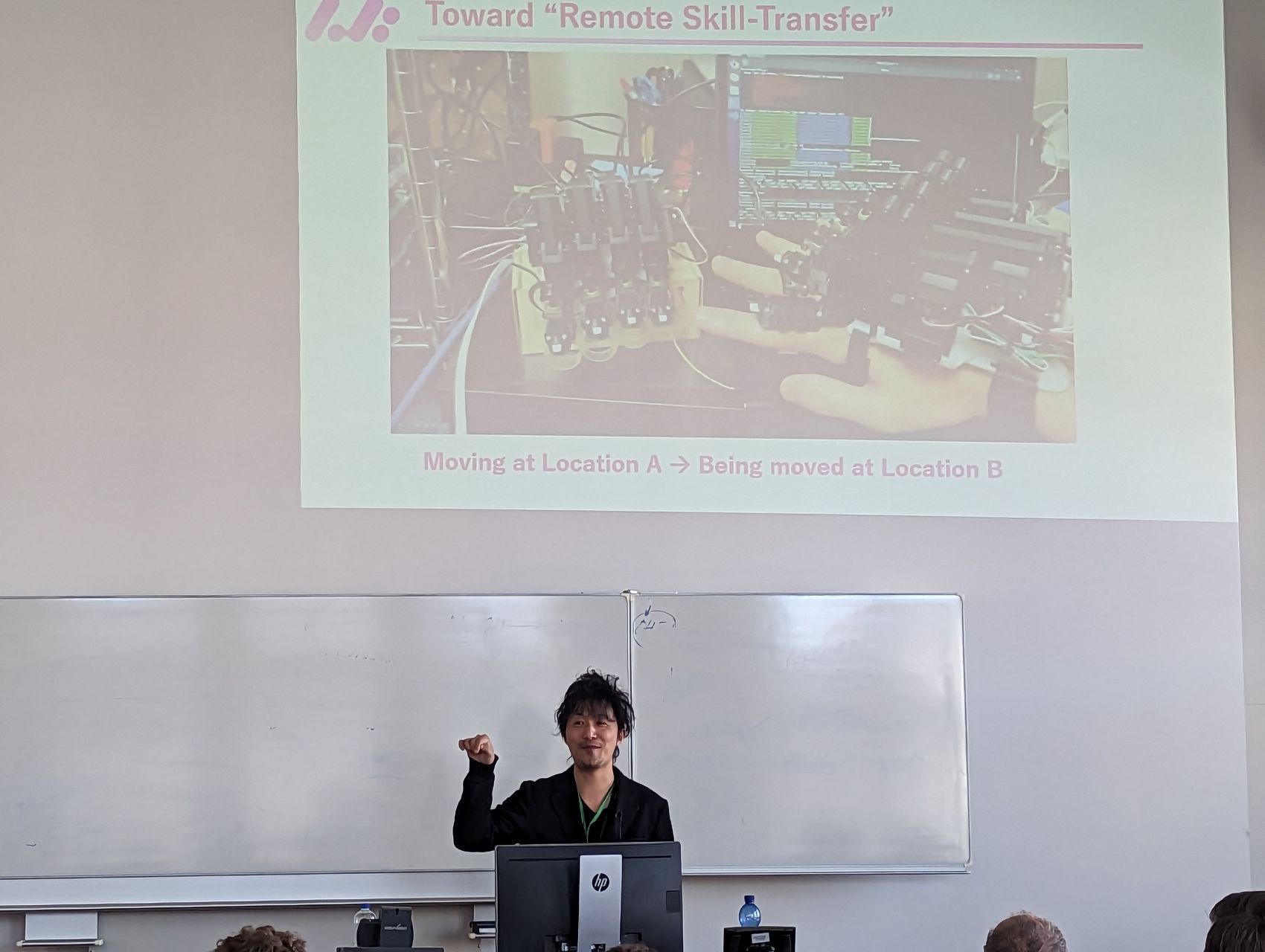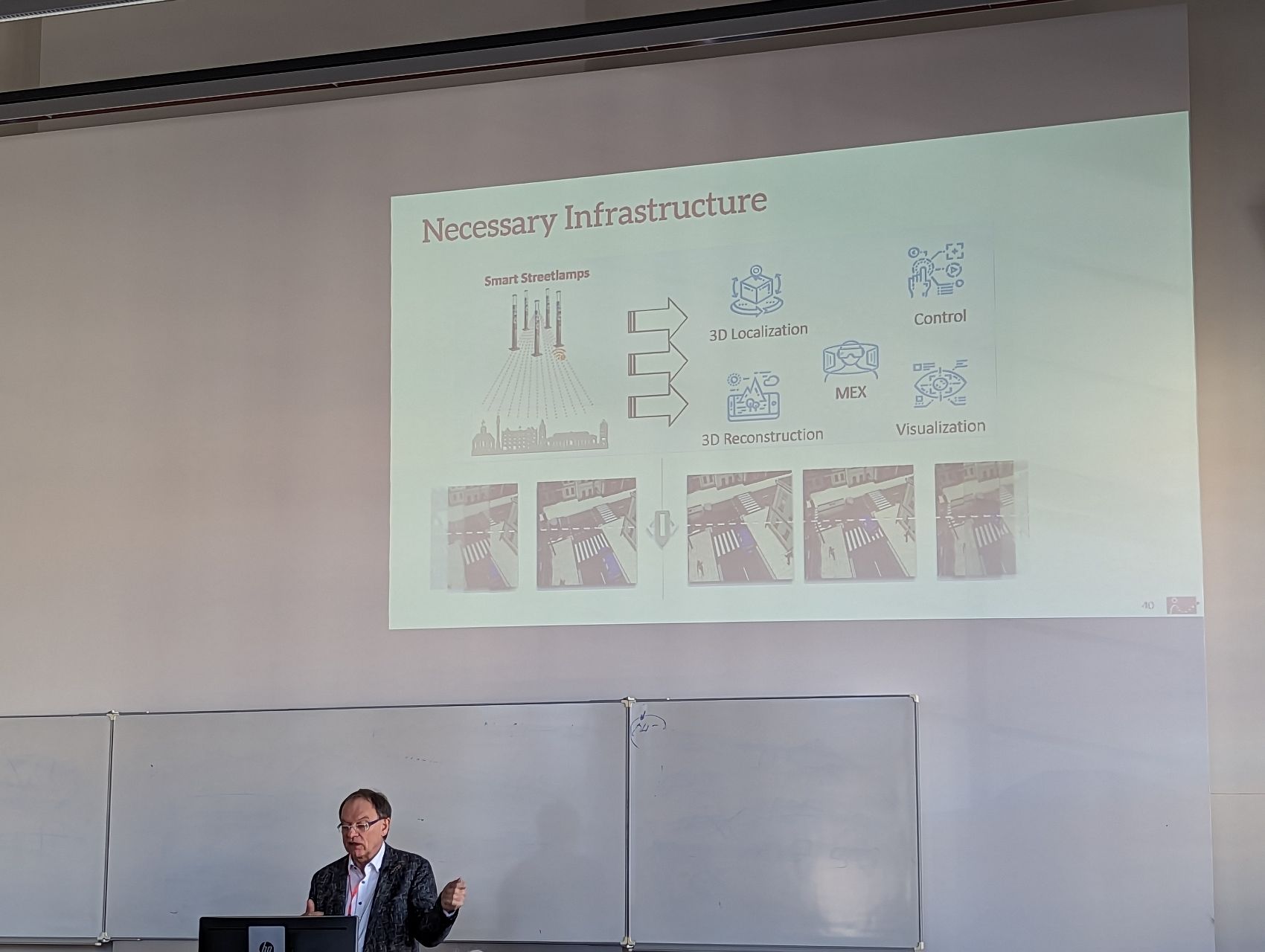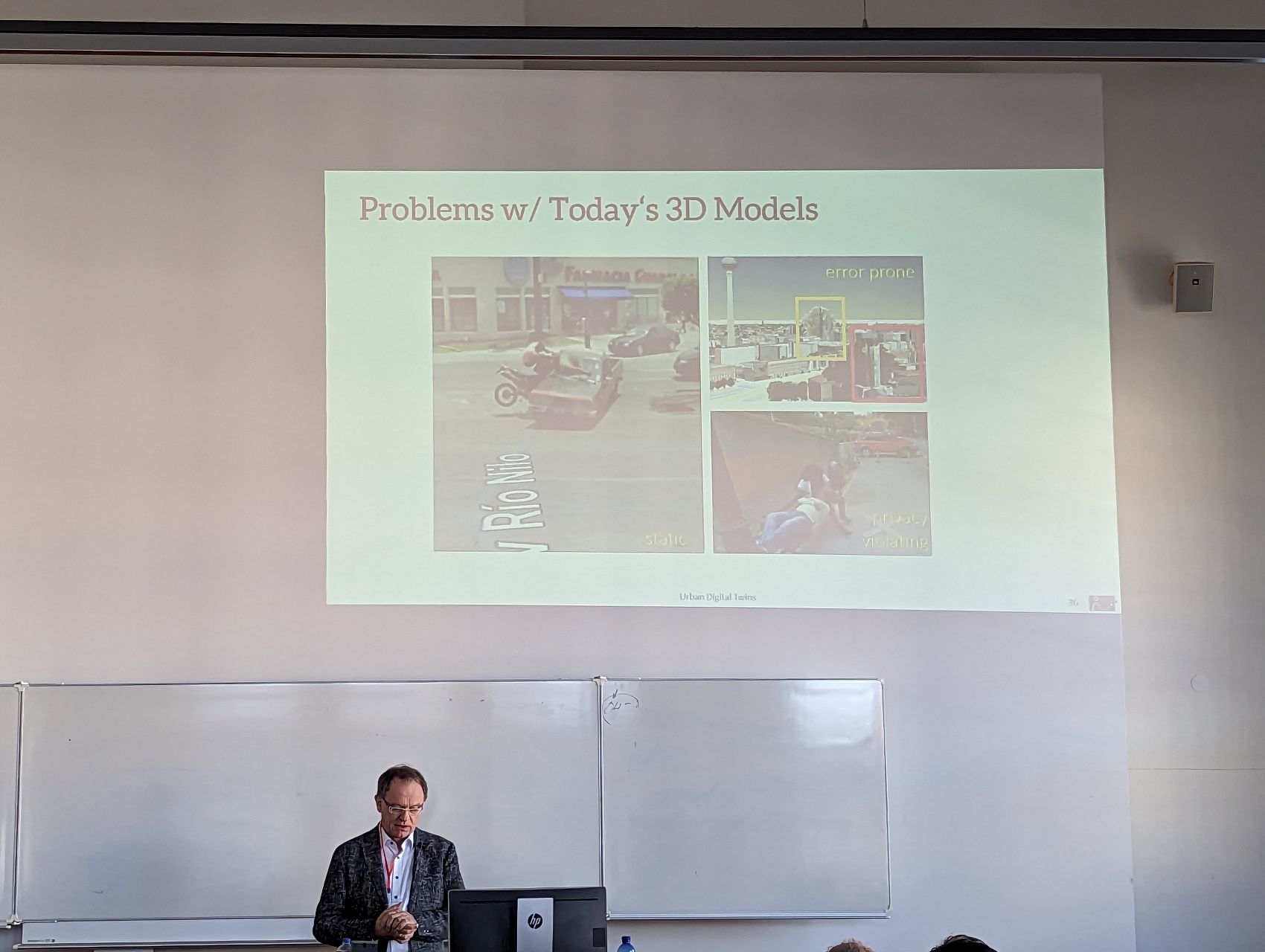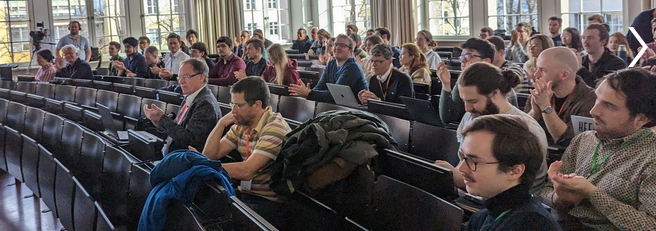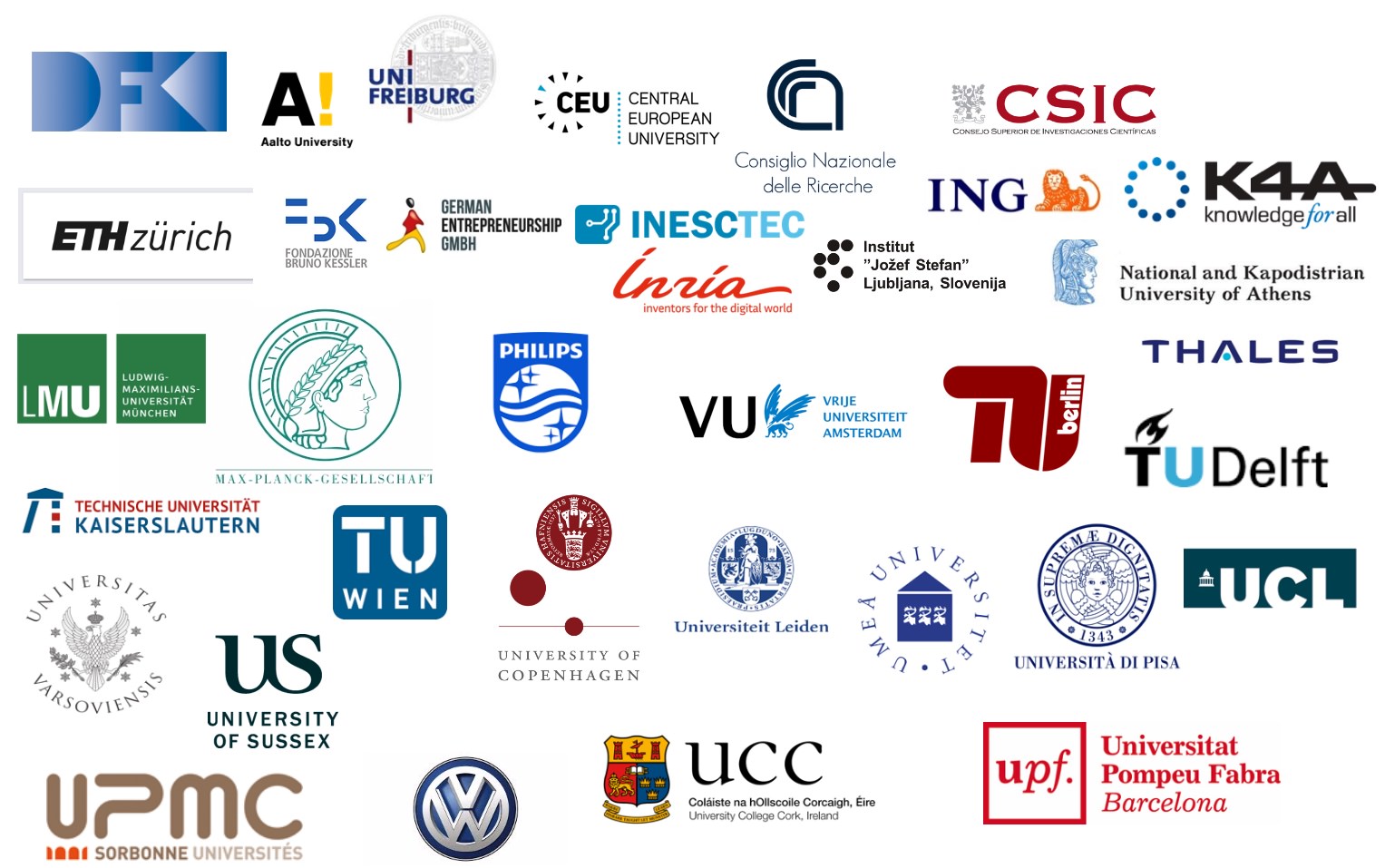News Archives
HumaneAI delivering a one day event @ European Parliament
27 May, 2023
We hosted a half-day event on May 25th at the European Parliament, Paul-Henri Spaak Building, Rue Wiertz 60, 1047 Brussels, Belgium, titled Beyond ChatGPT: How can Europe get in front of the pack on Generative AI Models?, organized by a broad consortium from science and civil society. The organizing committee included the HumanE-AI-Net European Network […]
Lecture “Large Language Models are All we Need?” by Prof. Giuseppe Attardi
15 March, 2023
On Tue 14. Mar we hosted online @ 17:00-18:00 the live lecture “Large Language Models are All we Need?” by Prof. Giuseppe Attardi, from the University of Pisa. The lecture discussed topics like the pros ad cons of using systems like ChatGPT and whether they’ll lead to discrimination. The lecture is part of the International […]
Closing the Symposium on Interaction with Technologies for Human Augmentation
20 February, 2023
THANKS to the amazing organization of Florian Müller, @Nađa Terzimehić, Sophia Sakel , Julian Rasch and Albrecht Schmidt , we have the closing of the “Symposium on Interaction with Technologies for Human Augmentation” #augmentsymp23 .. Good bye everyone AND looking forward to meet in future events 🥳🥳 If you missed the event, you can see […]
Shinichi Furuya @ Symposium on Interaction with Technologies for Human Augmentation
20 February, 2023
Shinichi Furuya , the neuroscientist in Sony labs who also doubles as a pianist .. telling us about the ceiling effect and sustainable development of skills .. for example you can train fingers to play faster AND the other untrained hand automatically moves as well! The exoskeleton training can overcome the ceiling effect! Elisabeth André […]
Max Mühlhäuser keynote @ Symposium on Interaction with Technologies for Human Augmentation
20 February, 2023
Max Mühlhäuser telling us about the main issues in doing 3D virtual interactions: Error prone, static and privacy violating .. check the project MEX if you are interested in the domain.. also check Meta’s vs. Google’s interests in the virtual spectrum. Asa Ito tells us we are not only controlled by our consciousness. The paradox […]
Jun Rekimoto keynote @ Symposium on Interaction with Technologies for Human Augmentation
20 February, 2023
Jun Rekimoto virtually joins us and tells us how we can use imaging to hear silent sounds! Also there are internships in Sony CSL for this summer linking human augmentation to Japanese culture. Hans Gellersen telling us how amazing our visual system is .. and showing us how smooth persuits are great for interaction with […]
Symposium in Ludwig-Maximilians-Universität München has started
20 February, 2023
The “Symposium on Interaction with Technologies for Human Augmentation” in Ludwig-Maximilians-Universität München has started Paul Lukowicz told us about the vision to make language models really understand us. Albrecht Schmidt told us about technologies on demand to augment our basic senses like hearing further conversations and zooming to further options by just focusing. @Heidiki koike […]
HumaneAI sponsors MLSS Africa 2023
20 January, 2023
In a groundbreaking initiative, the HumaneAI project is delighted to announce that it will be supporting the esteemed MLSS Machine Learning Summer School in the picturesque locale of Stellenbosch, South Africa. This decision underscores HumaneAI’s commitment to fostering a global community of machine learning enthusiasts and promoting human-centric AI education on an international scale. HumaneAI’s […]
HumaneAI partners launch new NAIXUS network of Excellence on AI and SDGs
6 July, 2022
HumaneAI partners generate a Network for Artificial Intelligence, Knowledge and SUStainable development – a nexus and central meeting point between AI and SDGs The International Research Institute on AI under the auspices of UNESCO (IRCAI) at Jpzef Stefan Institute which is a core HumaneAI partner, officially launched its Network of Excellence NAIXUS; a multi-stakeholder initiative […]
HumaneAI extended until 2023
8 April, 2020
The HumaneAI project has been successfully extended into the HumanE-AI-Net under the H2020 call topic ICT-48-2020 – Towards a vibrant European network of AI excellence centres which now gives the consortium 3 years to build and exciting new scientific domain. The HumanE AI Net brings together top European research centers, universities and key industrial champions […]
A new book by Virginia Dignum (Umea partner) is out with Springer
12 February, 2020
In this book, the Virginia Dignum examines the ethical implications of Artificial Intelligence systems as they integrate and replace traditional social structures in new sociocognitive-technological environments. She discusses issues related to the integrity of researchers, technologists, and manufacturers as they design, construct, use, and manage artificially intelligent systems; formalisms for reasoning about moral decisions as […]
